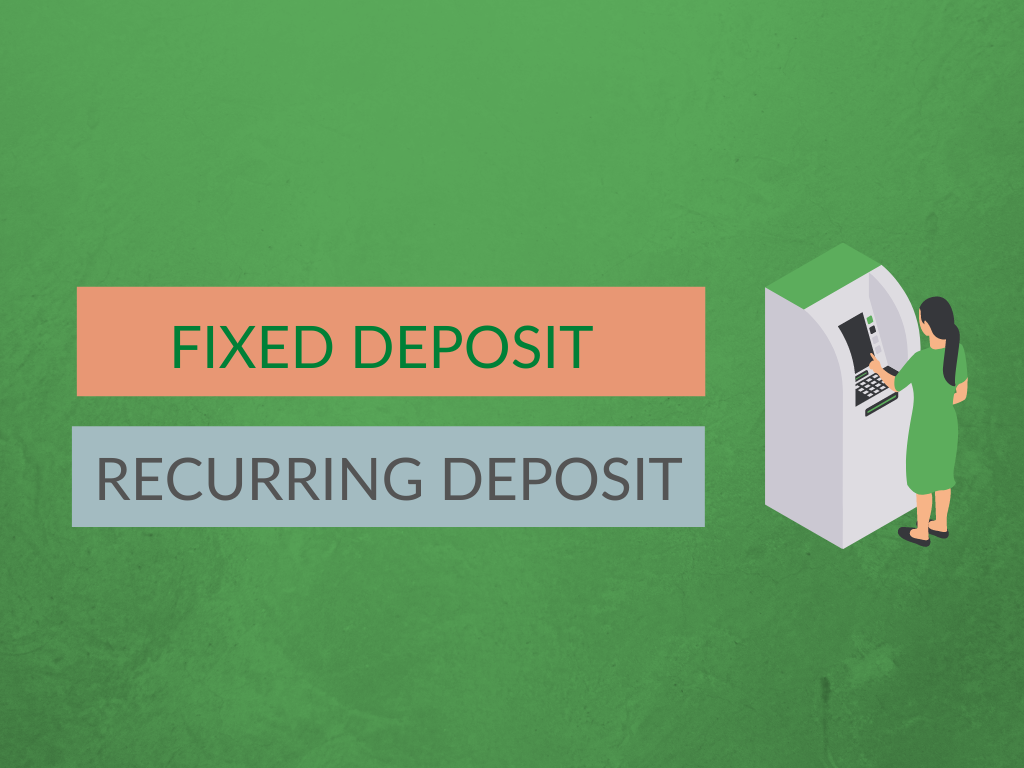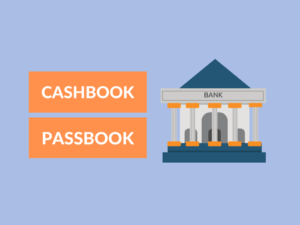Before knowing about Fixed Deposits and Recurring Deposits, we have to know about the term ‘Time Deposits’. The Time Deposits are the deposits unlike cash deposits in savings accounts or current accounts specify a specific objective of depositing a fixed money for a particular time and the money deposited cannot be withdrawn until the end of the time specified.
The ‘Time Deposits’ are also called as ‘Term Deposits’. The most famous of Time Deposits are
⦿ Fixed Deposits
⦿ Recurring Deposits
⦿ Demand Deposits.
FIXED DEPOSITS
Fixed Deposit is considered as one of the most popular forms of investment in the world. Fixed Deposit as the name itself suggests it is the method of investment where you deposit a fixed amount of money in your account with the bank for a fixed amount of time to earn a fixed amount of interest.
Fixed Deposit is usually referred simply as FD in its short form. The depositor at the end of maturity period of a Fixed Deposit gets the principal amount plus interest earned on the principal for the time which he deposited money in the fixed deposit account. The Fixed Deposits Account is opened at the time of deposit of money and the depositors are not permitted to withdraw the money before the maturity period. The depositors can withdraw their money only by closing the account.
Fixed Deposits usually are subjected to lower risks and promises assured returns to the depositors of fixed deposits. The Fixed Deposits help the depositors to save tax by investing in fixed deposits. Fixed Deposits normally give a higher rate of interest than recurring deposits or savings accounts.
RECURRING DEPOSITS
Recurring Deposits is the most famous investment method for many people because of its many benefits. Recurring Deposit is the deposit where the depositor makes deposits into his account with bank every month or quarterly or at regular intervals of time in the form of installments. Recurring Deposits encourage and help people to save the money in the form of investment in the banks and also provides interest on the amount.
Recurring Deposit is usually referred simply as RD in its short form. The depositor at the end of the term of Recurring Deposit gets the principal amount plus interest earned on the principal amount.
The Recurring Deposit Account is opened by the depositor to deposit the money into the account at regular time intervals. The depositors are not permitted to withdraw the money before the maturity period. The depositors can withdraw their money only by closing the account.
COMPARISON TABLE
| FIXED DEPOSIT | RECURRING DEPOSIT |
|---|---|
| The Fixed Deposit is a method of investment where the amount is deposited into an account at the time of opening of the fixed deposit account. | The Recurring Deposit is a method of investment where a fixed amounts of installments are deposited at regular intervals of time into RD account. |
| Benefit For | |
| Fixed Deposits are considered as beneficial for people who are having surplus money to invest so that they can earn higher returns in the form of interest. | Recurring Deposits are considered as beneficial for people who are having a regular income and want to save money for long-term purposes. |
| Duration | |
| The term of the Fixed Deposit account normally ranges from a minimum of 7 days to maximum of 10 years depending upon the necessity of the depositor. | The term of the Recurring Deposit account normally ranges from a minimum of 6 months to maximum of 10 years. |
| Minimum Amount | |
| The minimum amount required to open a fixed deposit account varies with the bank to bank. | The minimum amount required to open a recurring deposit account usually depends upon the policies of the bank. |
| Facilitates | |
| The Fixed Deposits facilitate people to earn higher interest on their deposits. | The Recurring Deposits facilitate people to save money by making them deposit money every month into the bank account. |
| Returns | |
| The interest rate is generally higher in the case of Fixed Deposits and the interest is calculated on compounding basis for every year. | The interest rate for Recurring Deposits is generally lower when compared to Fixed Deposits and the interest is calculated on compounding basis for every 3 months. |
CONCLUSION
Both Fixed Deposits and Recurring Deposits are different in various ways like interest rates, the tenure of deposit and the method of interest calculation. Both of them are having low risk and promises assured returns to the depositors. The drawback of Fixed Deposits and Recurring Deposits are that they are not so liquid and cannot be withdrawn before the maturity period. Both fixed deposits and recurring deposits offer tax savings to the depositors.




